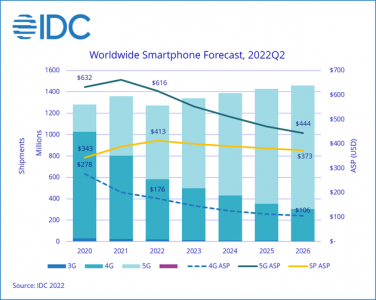your current location is:Home > Finance > NewsletterHomeNewsletter
Zuckerberg's big money-burning bet on the Metaverse sparks shareholder outrage

some major shareholders of Facebook parent company Meta are venting their anger at the management of the social media company. Meta stunned Wall Street previously by announcing that it plans to move forward with its loss-making Metaverse project.
Meta shares have fallen 74% over the past year or so. However, investors and board experts say there is little outsiders can do to stop Meta CEO Mark Zuckerberg from using his majority control to proceed with a bet that has lost the confidence of Wall Street.
Meta shares plunged 25% last Thursday. The company previously revealed that Reality Labs, the unit responsible for the Metaverse project, lost $9.4 billion in the first nine months of this year, with losses set to increase "substantially" in 2023. Meta said that capital spending next year will be as high as $39 billion, more than double what it was in 2021, stunning investors.
"If other companies do this, you'll see activist investors start sending letters to companies, proposing replacement names for board members, and demanding Make changes. I think Zuckerberg heard very clearly what investors wanted. But he has made his own decisions.”
Investor anger has spilled over into meetings with management. Zuckerberg himself has participated in some of the meetings since Meta's announcement of plans rocked Wall Street last Wednesday.
Investors do appear to be outraged by Meta's ballooning costs, one of the people said.
Following Wednesday's earnings call, Meta had a series of informal calls with investors. "When investors got a call from the company, they became more disgusted," Tierney said.
Investment firm Carmignac, which manages 33.2 billion euros in assets, has stakes in Amazon, Microsoft and Google, but not Meta. David Older, head of securities investing at the agency, said: "Zuckerberg has turned a deaf ear to the investment community and is doubling down on almost everything. The timetable for developing the metaverse is very tight. I think , you won't know for five to 10 years if this is the right move."
Regarding how shareholder dissatisfaction will affect the company's plans, Meta responded: "We value the opinions of our investors and communicate with them regularly to ensure we understand their respective views."
Like many companies, Meta holds some investor meetings within days of reporting quarterly earnings, but Zuckerberg's personal control over Meta means he can ignore the opinions of other shareholders. Zuckerberg, the co-founder of Meta, holds 13% of Meta's shares but controls 54.4% of the company's voting rights through a special class of shares.
Meta did not comment on whether shareholder dissatisfaction would lead to a renewed discussion of the size of the payout within the company, but said: "Meta's management team, overseen by the board of directors, is focused on executing on the company's key priorities with an eye toward creating long-term shareholder value. ."
Zuckerberg's personal control of Meta has been fueling growing investor disappointment in recent years. Meta has been at the center of a storm amid a series of controversies surrounding misinformation and user privacy protections, while the company is making big bets on the metaverse. At Meta's annual shareholder meeting earlier this year, a shareholder proposal to abolish supervoting shares received 28 percent of the vote, up from 17 percent for a similar proposal in 2014.
Steve Diamond, a corporate governance expert at Santa Clara University School of Law, said Meta's directors are legally responsible for representing all shareholders, even though Zuckerberg, the chief executive, controls who is on the board. He said courts could intervene on behalf of shareholders if the board was found to be "wasting" company resources. But the issue was identified "with a very high standard" and was almost never upheld.
"I'm amazed that they've spent so much money on the Metaverse project, and nothing comes out of it," Diamond said. "If the CEO of this company only owns 1%, then he's probably People have already left."
In the absence of a formal way to change Meta's direction, potential activists among shareholders have had to take a relatively lenient approach. Shortly before Meta released its latest earnings last week, Brad Gerstner of Altimeter Capital tried to get Zuckerberg's attention with a flattery in an open letter to Meta directors. He praised Meta's business but urged the company to cut its workforce by at least 20%, cut capital expenditures by $5 billion and limit investment in the Metaverse to $5 billion a year.
Carmignac's Alder said: "Everyone agrees with Brad Gerstner's open letter to Zuckerberg. You can own a great stock while investing $5 billion a year in Metaverse projects , but you have to keep costs under control and make sure you invest with discipline.”
During a conference call with analysts on Wednesday, Meta executives tried to soothe analysts' jitters. They noted that 82% of Meta's most recent quarter's spending was on current services, not the Metaverse.
Some tech investors said Zuckerberg may have reason to be more aggressive given the risks Meta faces. Kevin Landis of Firsthand Funds noted that Apple's efforts to protect user privacy by restricting apps from collecting data through its devices would severely hit Meta's ad revenue. The incident also seemed to convince Zuckerberg that he had no choice but to go all out to build the next generation of important computing platforms.
Landis said that past major transformations in the digital world have brought about a massive transfer of value, which may also explain why Zuckerberg has defied dissent and moved forward with the Metaverse. "In a typical governance structure, we would have a committee making decisions, but there would be endless bickering."
Tierney said investors' dissatisfaction was largely due to Meta's failure to provide any timeline for when the current big investment would pay off. "They're spending $15 billion a year on the Metaverse without giving us any road signs, just drawing the pie."
Previous:Google to appeal $4.1 billion Android antitrust fine again
Next:Users lose access to accounts for 8 hours: Instagram says it has fixed software bug
related articles
Article Comments (0)
- This article has not received comments yet, hurry up and grab the first frame~













